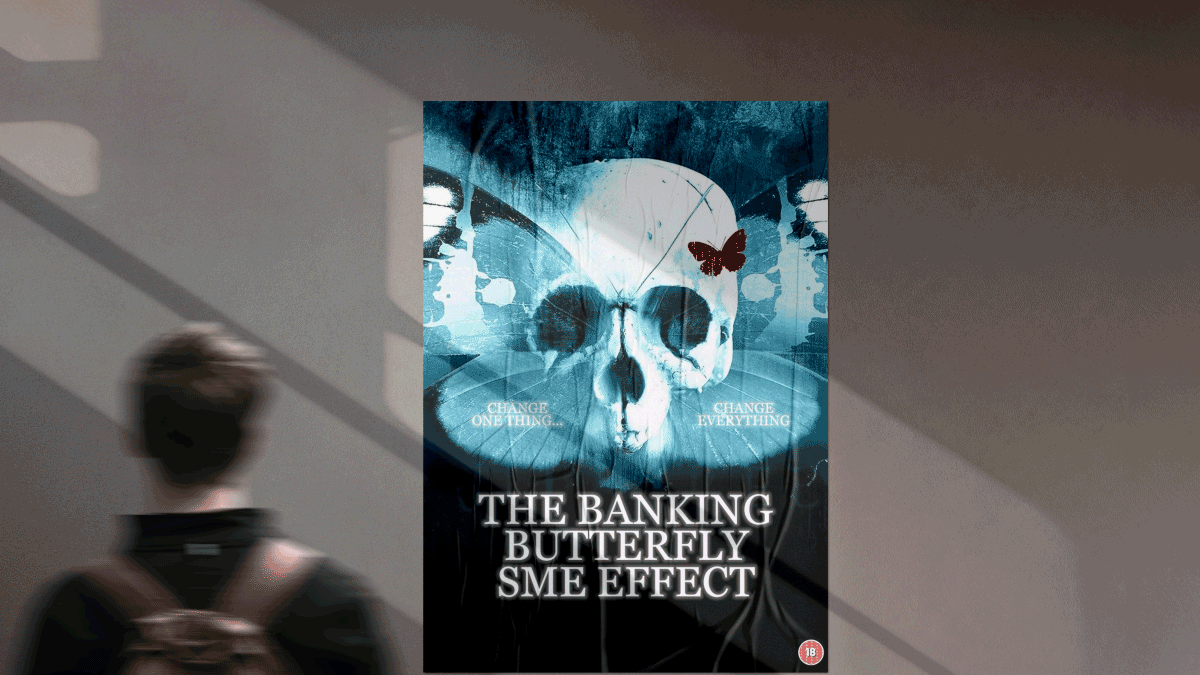Hello and welcome to the latest edition of Off to Lunch…
SMEs make up over 99 per cent of the UK’s business population and provide nearly half of employment in our economy. They include everything from early-stage start-ups to local businesses and rapidly growing innovators.
Access to finance for SMEs must not be jeopardised further.
This is an extract from a new report from the Commons Treasury committee. It was commissioned to look into “the wider issue of Access to Finance and what more can be done to help these businesses grow“. It primarily focuses on new lending rules that are intended to protect banks but could drive up borrowing costs for SMEs.
Along with an examination of de-banking and a review of the powers of the Financial Ombudsman Service, one of the focus areas of the report is the Basel 3.1 framework, which has been suggested by the Prudential Regulation Authority (PRA), a part of the Bank of England. It builds on the Basel III framework, which was introduced to protect banks in response to the 2007-09 financial crisis.
Basel 3.1, which is due to be implemented next year, intends to strengthen banks and make “capital ratios more consistent and comparable“. The new measures would scrap the SME supporting factor, a mechanism introduced in the European Union in 2014 that lowers capital requirements on lending to smaller businesses. Banks see this as lessening risks but the committee has concluded that it “risks tightening conditions for SMEs even further“.
Allica Bank warns that its implementation is “the most critical issue facing SME lending in the UK”. Research from the bank suggests it would reduce the supply of SME lending by up to £44bn and increase the cost of borrowing for SMEs by between 1 per cent and 1.5 per cent.
OakNorth Bank has also raised concerns, saying the changes could impact the UK’s standing on the international stage:
If implemented, these changes will mean the UK would be an outlier in comparison to peer jurisdictions such as the European Union … we are unclear why the PRA is proposing this path, given that UK capital requirements are already some of the highest in the world.
The committee suggests the PRA should “ensure that the final implementation of the Basel 3.1 standards leaves capital requirements on SME lending no more stringent than they are under the current system”.
Having previously looked into SME finance in 2018, the report holds a mirror to the stark reality that many leaders are going through. One of the key points raised in the committee’s 2018 report was:
The reluctance among many business owners to seek external finance is driven by a variety of factors, though it is clear that a lack of trust in lenders and an often-misplaced fear of rejection are key contributors.
This conclusion regarding ‘finance apathy’ rings even more true in our post-pandemic world. The Impact Investing Institute, a non-profit focusing on a sustainable economy, told the committee that the success rate of SME applications for bank loans fell from 80 per cent in 2018 to around 50 per cent in 2023, while the Federation of Small Businesses reported that the success rate for all types of finance fell from 65 per cent before the pandemic to a low of 45 per cent in 2022.
Chair of the Treasury Committee Dame Harriett Baldwin concludes: “Banks and regulators can’t wave a magic wand and solve all of the problems facing small businesses in this country, but they can certainly do more than they currently are. I hope banks, the regulators and the Treasury take careful note of what we’ve uncovered.”
Podcast…
The latest episode of the Business Leader Podcast focuses on one of the most famous brands in the world.
Josh Bayliss was appointed as the chief executive of Virgin Group by Sir Richard Branson in 2011. He works with an array of Virgin-branded businesses and is responsible for 70,000 employees but has just one shareholder – the Branson family. It is a unique job with unique challenges and unique opportunities.
This is the story behind the Virgin brand and how Bayliss ended up running it.
You can listen to the episode on Substack here, Spotify here and Apple here
Other stories that matter…
1. A new report from think tank Ember has revealed that renewable energy accounted for a record 30 per cent of global electricity last year. “The rise in solar capacity that happened during 2023 really unlocks the possibility that we are able to reach that level of renewables by 2030, and the tripling of capacity that was promised at COP28,” says Dave Jones, Ember’s director of global insights. You can read more here.
2. Wetherspoons has revealed strong sales growth in its latest quarterly results. Like-for-like sales increased by 5.2 per cent compared to the same period last year, while year-to-date like-for-like sales increased by 8.3 per cent. Never one to shy away from a passing comment, the company’s chairman Tim Martin said: “Sales of Lavazza coffee are also increasing. Free refills are thought to be responsible for spontaneous exhibitions of breakdancing among retired customers.“ You can read more here.
3. Just a day after the news of the $1bn+ raise by Wayve, we have learnt that one of the hottest names in artificial intelligence has chosen London for its first European HQ. Its 27-year-old billionaire founder Alexandr Wang says he is confident in the company’s choice due to “Rishi Sunak and country leadership's thoughtful approach to AI policy“. You can read more here.
4. Castore has made its first acquisition since it was valued at almost £1bn. The sportswear brand acquired Infinity, a Leeds-based supplier of branded merchandise, clothing and uniforms, for an undisclosed amount. You can read more here.
5. Retail tycoon Mike Ashley is enjoying life after handing over the day-to-day running of Frasers Group to his son-in-law Michael Murray. The annual accounts of his company Mash Holdings revealed that the billionaire increased his annual private jet and helicopter spend from £1.5m to £2.6m. You can read more here.
And finally…
If you didn’t have enough of a reason to support England and Scotland at Euro 2024, James Cleverly has just given us another one. The Home Secretary has confirmed that pubs will be allowed to extend their opening hours to 1 am, provided the nations make it to the last four at the tournament in Germany.
For those who are looking to mark their calendars, that’s Tuesday, 9 July or Wednesday, 10 July for the semis, and Sunday, 14 July for the final…
Thanks for reading. If you enjoy Off to Lunch then please share it with others and spread the word. If this newsletter was shared with you then please sign-up below to get Off to Lunch sent directly to your inbox








